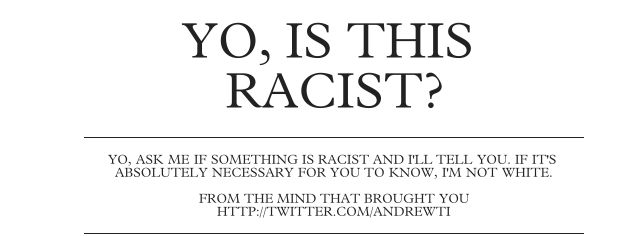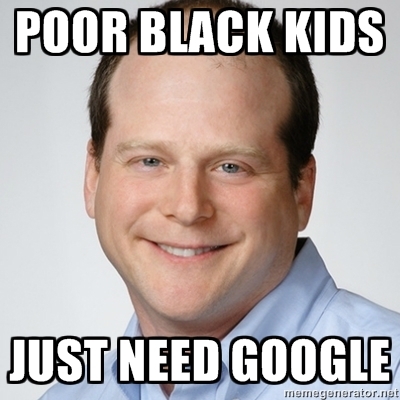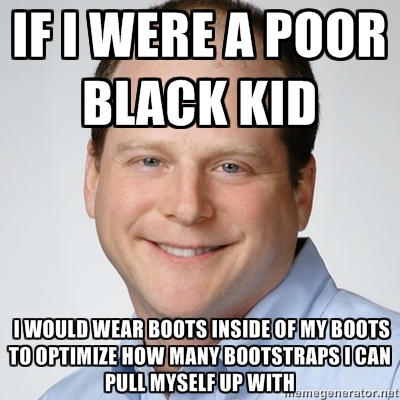A few weeks ago, I posted some resources for thinking critically about privilege. Here are a few more that came to my attention in the last 72 hours or so:
1. Yo, is this racist? I first saw this tumblr blog several weeks ago when a facebook friend posted it. I was reminded of it after reading this Colorlines interview with the creator/writer of the blog. Here’s how Andrew Ti describes his overall goal:
“What I would like to have, the resource that seems most needed based on the questions in general and the hatemail from indignant white people,” says Ti, “is just an examination of white privilege, and of all privilege in America. That’s what I try to bring to the table, without being too serious about it: an examination of privilege. Because at the end of the day, I’m making jokes and making fun of people, and if that sting of embarrassment can make one in a hundred people think, ‘why is that? Why do I feel this way?’ That’s what I can bring.
2. Another resource that uses humor to expose, examine and challenge white privilege is Franchesca Ramsey’s YouTube video, “Shit White Girls Say…to Black Girls.” Posted on January 4th, it has “blown up the Internet“:
This video is all over the place. I even found it on the VH-1 blog (via my Flipboard)! I found an interesting comment on the Racialicious article about the video. Yonnie writes:
I hope to see Racialicious do a more analytical article on this video and more importantly, the comments/reactions to it on the internet.
I do think that a critical analysis of the comments/reactions to this video might be good…if you have a strong stomach. I can only imagine the racist, privilege-denying rants that this video could spark. I do have hope that humor can reach and positively challenge people, like here.




